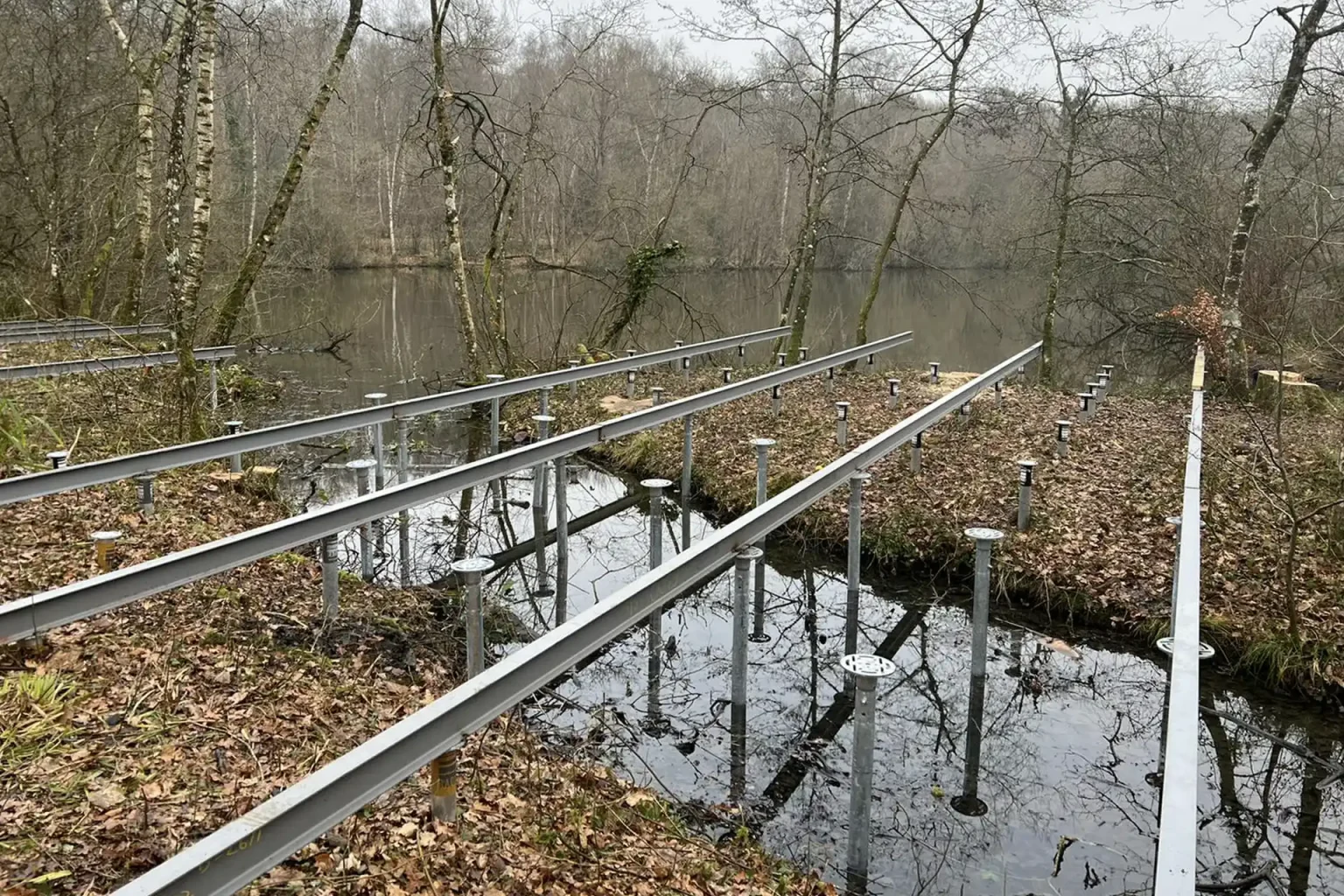
The advantages of ground screws and screw piles
There are many advantages to using ground screws or screw piles for the foundations of small or large projects across many different sectors. Whatever you are planning to build, our screws will deliver strong and secure, cost-effective foundations that you can trust.
Product Enquiry Installation Enquiry
Need help? Not sure what screws you need? Contact us for help.

Why RADIX screw foundations are the right choice for your project
Here are some of the key advantages and reasons why it makes sense to use RADIX Ground Screws and Screw Pile foundations for your next build.
Whether you’re building a shed or a deck in your garden, a large-scale solar farm or battery energy storage system, a new pergola, carport, or a fence… screw foundations are the smarter solution!
Look at our ground screw range today, or for larger structures, view our screw pile range.
Do ground screws have any disadvantages?
Ground Screws may not be suitable for some types of installations, and the cost of them could be more expensive compared to alternative solutions. The disadvantages can only be realised once a thorough analysis of what you want to build is looked at. The soil conditions may not be suitable and for a small project, our self-install ground screw starter kits may be better from a cost perspective, if you are willing to do the work yourself.
Other ground screws and piling systems in the market have many disadvantages when compared to our brand, so ask us for advice, and don’t risk your construction with inferior screws.
Ground screws vs. Concrete foundations – Which is better?
In evaluating ground screws vs. concrete foundations, both options have their advantages and disadvantages. Ground screws offer faster installation, flexibility in challenging terrains, and a more environmentally friendly footprint. On the other hand, concrete foundations provide greater load-bearing capacity and strength, if you are building extremely large structures. Ultimately, the choice depends on the specific requirements of the project, considering factors such as time, budget, terrain, and sustainability goals.
Ease and Speed of Installation:
Ground screws offer a significant advantage in terms of installation time. Unlike concrete foundations, which require curing and drying time, ground screws can be quickly installed regardless of weather conditions. This can result in significant time savings for construction projects.
Flexibility in challenging terrain:
One of the major drawbacks of concrete foundations is their limited adaptability to challenging terrains. Screws, on the other hand, can be adjusted to accommodate sloped, rocky, or uneven surfaces, making them ideal for projects in such environments. This flexibility ensures stable and level foundations, even in difficult terrain.
Environmental friendliness:
Concerns about environmental impact have become increasingly important in construction. Screws offer a more sustainable option compared to concrete foundations. They emit significantly less carbon dioxide (CO2) during production, have less embodied carbon, and can be reused or recycled, reducing their overall environmental footprint.
Load-bearing capacity:
While ground screws are a versatile option for most building projects, their load-bearing capacity might be limited compared to concrete foundations for large construction projects.
For large-scale multi-story structures or heavily loaded buildings, concrete foundations may be more suitable, offering greater stability and strength.
Cost-effectiveness:
For most foundation projects, screws will be a more cost-effective option when all factors are considered.
According to an article that appeared on Imperial’s news website, approximately 3.5 billion tonnes of Ordinary Portland Cement globally are produced every year. Every tonne produced releases up to 622 kg of carbon dioxide (CO2). This implies that the cement industry globally contributes a substantial 7% to the total anthropogenic CO2 emissions
More locally, a 2018 report by Chatham House disclosed that cement production accounts for roughly 8% of the world’s carbon emissions.
Imperial College London. (2021). Best ways to cut carbon emissions from the cement industry explored. Retrieved from https://www.imperial.ac.uk/news/221654/best-ways-carbon-emissions-from-cement/
Dezeen. (2022). UK appoints Mineral Products Association to calculate concrete’s carbon sink. Retrieved from https://www.dezeen.com/2022/01/12/uk-cement-trade-body-mineral-products-association-calculate-concrete-carbon-sink/
Department of Energy and Climate Change. (2018). Cement Report. Retrieved from https://assets.publishing.service.gov.uk/media/5a8046d5e5274a2e8ab4f37d/Cement_Report.pdf
However, the industry and the UK government are taking steps to address this issue. The UK government has committed to transitioning to a low-carbon economy, and this includes most energy-intensive industries, such as cement production3.
In conclusion, cement production significantly contributes to carbon emissions in the UK and globally. However, sustained efforts are being made to address these concerns and transition towards more sustainable practices, like the use of screw foundations.
For some larger-scale construction projects, concrete foundations can be more cost-effective. The economies of scale associated with concrete production, availability of resources, and established construction practices often make concrete foundations a financially viable option. For many other larger-scale projects, our extendable helical screw pile foundations are the better option.
Read more about RADIX Screw Piles vs. Concrete foundations.